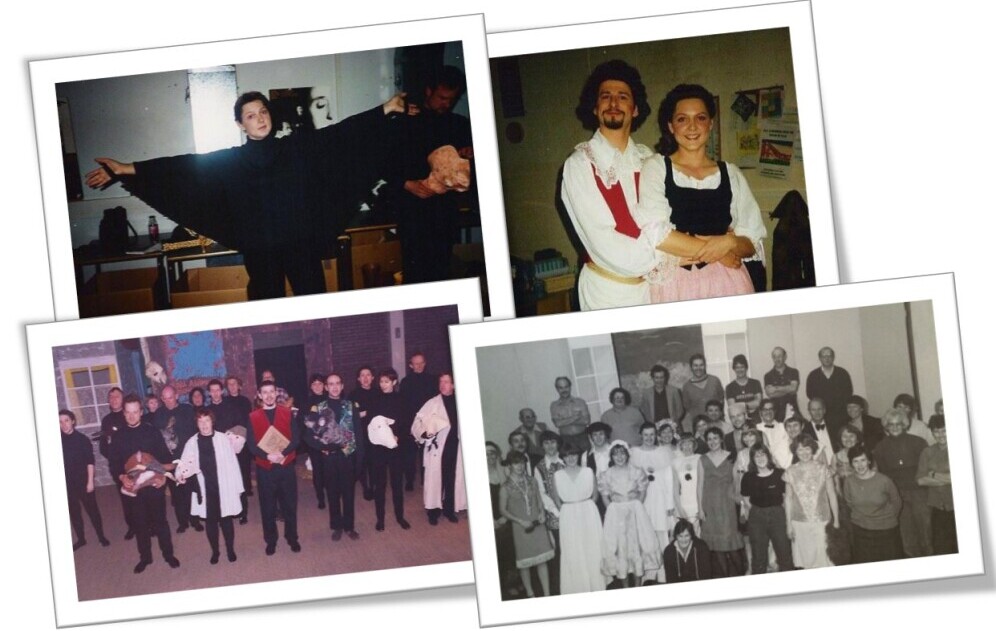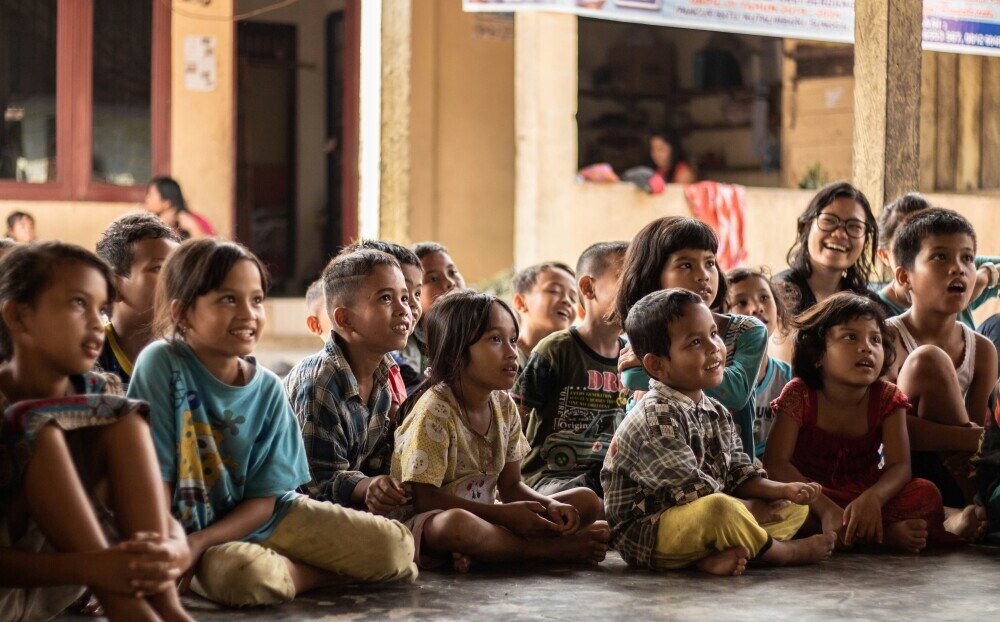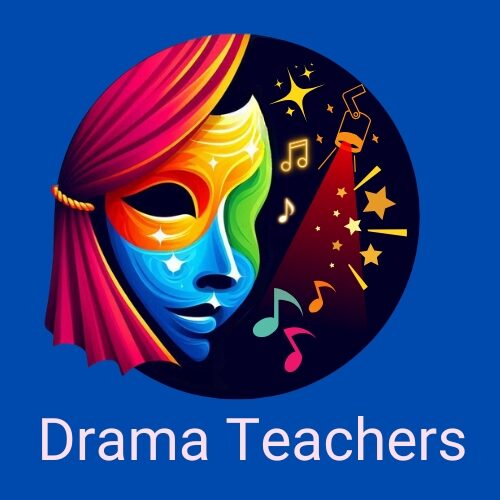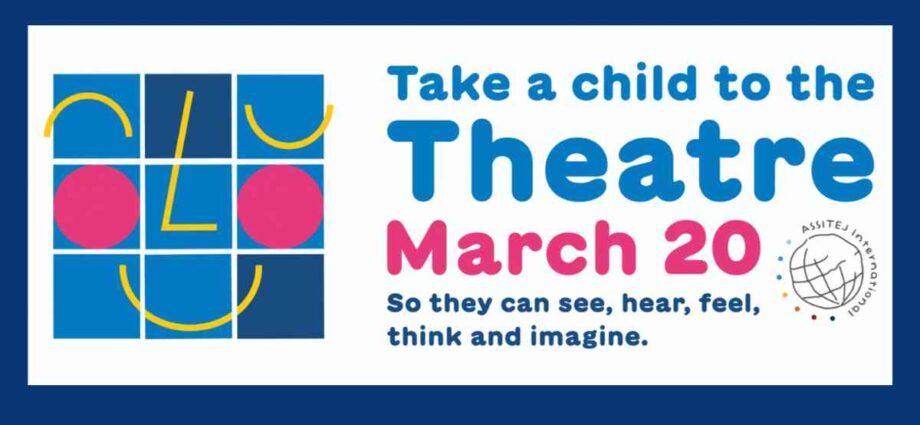Did you know that 20 March 2025 is the World Day of Theatre and Performance for Children and Young People? This global celebration is all about recognising the incredible power of theatre and performance in the lives of children and young people. Do you remember sitting excitedly on your first outing to the theatre – not knowing what was going to happen but full of curiosity? I know I was enthralled and it started a love of theatre that has lasted a lifetime. So, how are you going to celebrate children’s theatre this year?

Željko Sinobad, CC BY-SA 4.0
Theatre isn’t just for adults or professionals – it’s for everyone!
Children and young audiences are some of the most passionate and open-hearted theatre-goers, and they deserve a chance to experience the magic of live performance in every form.
Whether you’re a drama teacher, a school coordinator, or just someone who believes in the power of theatre to inspire and transform young lives, this is your day to get involved and spread the word!
Why is this day so important?
Accessibility: Theatre for children should be accessible to all, regardless of their background or circumstances. This day encourages us to ensure that ALL young people have the opportunity to explore their creativity, imagination, and voice through performance.
Empowerment: Theatre empowers children and young people to express themselves, build confidence, and understand the world around them in creative ways. It’s a powerful tool for personal and social growth.
Global unity: This day also serves as a reminder of the importance of international collaboration in creating accessible and inspiring theatre for young audiences worldwide.

By Đorđe Tomić – Little Theatre “Duško Radović”, Belgrade, CC BY-SA 4.0, https://commons.wikimedia.org/w/index.php?curid=151281269
What’s your story?
My family has always been involved in theatre. My mum was a founder member of a local amateur dramatic society called Hardingstone Players (BIG shoutout to them) and I was in my first panto at the age of 7. I played a goblin in a production of Rumpelstiltskin and every time I hear In the Hall of the Mountain King by Grieg, I’m transported back to my green tights and tunic, prancing around a prop campfire! Fantastic! My sisters and friends also formed a group we called Puppet Pals using puppets and a theatre that we made ourselves, in true The Sound of Music style.
I also went to dance classes, took part in many school productions and a church minstrels group, started directing (my true love) and choreographing. Over the years, I was involved in many productions and obviously became a Drama Teacher eventually. Here are a few of my most memorable performances below.

How can you get involved?
👉 Share your own theatre experiences whether onstage, backstage or in the audience
Encourage your students to share their favourite theatre moments or performances with the world! Have them reflect on how theatre has impacted their lives and what they love about being part of a performance.

By Ross Stapleton-Gray – https://en.wikipedia.org/wiki/File:FairylandAesop.JPG, CC BY-SA 4.0, https://commons.wikimedia.org/w/index.php?curid=46949548
👉 Host a special event or performance
This could be a short play, a performance showcase, or a mini-theatre workshop – the possibilities are endless! Make sure to invite parents and the community to join in the celebration. Inside, outside or in your back garden, it doesn’t matter – what matters is that you ENGAGE children.

👉 Collaborate with fellow teachers
Reach out to other drama and English teachers and schools in your area to host joint performances or activities. Together, we can make theatre even more accessible to the younger generation! And don’t forget that you can use theatre to teach lots of different subjects. We created a theatre piece for children once for the National Trust about bees – I’ll never forget that waggle dance!
 By Hanay, CC BY-SA 3.0, https://commons.wikimedia.org/w/index.php?curid=14971984
By Hanay, CC BY-SA 3.0, https://commons.wikimedia.org/w/index.php?curid=14971984
👉 Spread the word
Use your social media platforms to raise awareness about the importance of children’s theatre. Share inspiring quotes, behind-the-scenes footage from your performances, or even recommendations for plays suitable for young audiences.
Join the global celebration!
Let’s come together to ensure that theatre continues to be a safe, creative space for young people to express themselves, learn, and grow. Whether you’re introducing your students to a new play, taking them to a performance, or simply spreading the joy of drama, 20 March is every child’s day to be inspired and shine!
So, mark your calendars and get ready to be part of this worldwide celebration! 🌟
👉 For more details on the day, visit: ASSITEJ Website
Related articles
Days to celebrate drama and the performing arts



Celebrating children’s theatre is such a powerful way to nurture creativity and confidence in young minds. I’m intrigued by the potential for theatre to transform classroom dynamics and community engagement. How do you envision integrating innovative performance methods to keep the experience fresh and inclusive? Additionally, have you observed any particular challenges when blending traditional theatre with modern digital storytelling in school settings?
Hi Slavisa. Thanks for reading my article and taking the time to comment. I’m glad you agree that engaging children in theatre is important. It can open so many doors. To answer your questions, I’ve been involved in theatre in education over the years as well as community productions and school drama so there is a lot that people can get involved with, even with a slight interest in theatre. There are also many travelling theatre companies that come into schools and give performances and run workshops which have helped to keep our school drama classes up-to-date and interesting. One such company in the UK is Frantic Assembly, which did a lot of work on the production of “The Curious Incident of the Dog in the Nighttime”. This production was a huge success and had a lot of innovative ideas, especially in terms of staging, movement and ensemble theatre.
There are always challenges in any theatrical production, whether blending digital storytelling or traditional theatre, but in my experience, the kids are much more switched on to the digital world than many teachers, so they can help out a lot!! Personally, I love the blending of performance, technology, art installations and interactive and immersive theatre. The more options, the better I think!
This is such an inspiring reminder of the impact theatre can have on children! I love how theatre helps creativity, confidence, and collaboration. As someone who’s seen the power of performance in youth settings, I completely agree that accessibility is key. How can schools and communities ensure more kids have opportunities to experience live theatre, especially those from underprivileged backgrounds? Also, what are some great beginner-friendly plays for young performers? Would love to hear recommendations! ????
Hi Zachary. Thank you so much for reading the post and sharing your thoughts. I’m pleased that you are inspired by the article and that you have first-hand experience of performance in youth settings. To answer your questions, I think that making things accessible is very important and I would recommend the following ideas:
1) Keep the costs low to participate- try to get some funding or grants from relevant places that support youth arts or youth culture. If not, then keep the running costs low by asking favours for venues, using schools, or creating theatres anywhere. Most theatrical people are used to this and you can create a play with very little money – at least when you start out.
2) Leverage the experience of parents/carers and volunteers to help with costumes, sets, chaperones and backstage work.
3) Take the work to where the people are – start small and create a schedule where you can showcase the work to the people you are trying to attract.
4) Join in with festivals as they usually have theatres and technicians already so that cuts some of the costs and you only have to pay to enter.
In response to your question about plays, I’d say that it depends on the age of the children you are working with. There are a lot of companies out there that publish musicals specifically aimed at school productions which are not very expensive but come with all the things you need including lighting cues, scripts, choreography advice and backing tracks. You could check out The Schools Musical Company, or DisneyWeinberger also publish a lot of their shows specifically for young people so that you can do “Beauty and the Beast”, “Aladdin” or “Guys and Dolls” in simplified versions. I’ve done several shows like this and they work well. Let me know if you decide to do anything.
Once you’ve settled in, you can move on to more ambitious productions such as “Les Miserables” or “Jekyll and Hyde”, both of which I’ve done with great success.